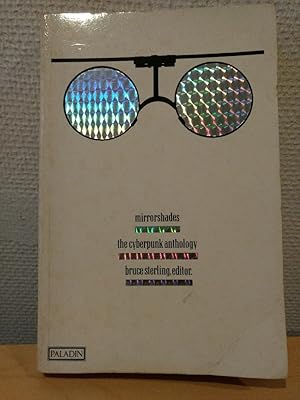

Wells the steely extrapolation of Larry Niven, Poul Anderson, and Robert Heinlein.Īnd the cyberpunks treasure a special fondness for SF's native visionaries: the bubbling inventiveness of Philip Jose Farmer the brio of John Varley, the reality games of Philip K. Ballard.įrom the harder tradition: the cosmic outlook of Olaf Stapledon the science/politics of H.

The free-wheeling zaniness of Norman Spinrad and the rock esthetic of Michael Moorcock the intellectual daring of Brian Aldiss and, always, J. Individual cyberpunk writers differ in their literary debts but some older writers, ancestral cyberpunks perhaps, show a clear and striking influence.įrom the New Wave: the streetwise edginess of Harlan Ellison. The cyberpunks as a group are steeped in the lore and tradition of the SF field. But its roots are deeply sunk in the sixty-year tradition of modem popular SF. I've avoided stories widely anthologized elsewhere, so even hardened devotees should find new visions here.Ĭyberpunk is a product of the Eighties milieu - in some sense, as I hope to show later, a definitive product. strong, characteristic examples of each writer's work to date. Mirrorshades should give readers new to Movement writing a broad introduction to cyberpunk's tenets themes, and topics. Within this book, I hope to present a full overview of the cyberpunk movement, including its early rumblings and the current state of the art. Critics, myself included, persist in label-mongering, despite all warnings we must, because it's a valid source of insight - as well as great fun. I'll be doing this too in a moment, for the temptation is far too strong to resist. Yet it's possible to make broad statements about cyberpunk and to establish its identifying traits. For the rest of us, our label is an uneasy bed of Procrustes, where fiendish critics wait to lop and stretch us to fit.

It follows, then, that the "typical cyberpunk writer" does not exist this person is only a Platonic fiction. And, somehow, group labels never quite fit the individual, giving rise to an abiding itchiness. Scarcely any writer is happy about labels - especially one with the peculiar ring of "cyberpunk." Literary tags carry an odd kind of double obnoxiousness: those with a label feel pigeonholed those without feel neglected. This movement was quickly recognized and given many labels: Radical Hard SF, the Outlaw Technologists, the Eighties Wave, the Neuromantics, the Mirrorshades Group.īut of all the labels pasted on and peeled throughout the early Eighties, one has stuck: cyberpunk. Their allegiance to Eighties culture has marked them as a group as a new movement in science fiction. This book showcases writers who have come to prominence within this decade.


 0 kommentar(er)
0 kommentar(er)
